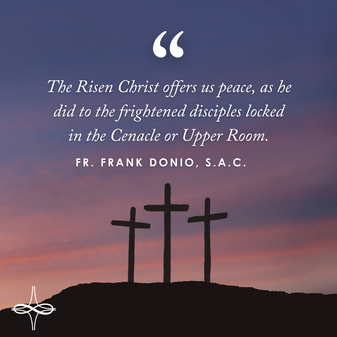 The hope of the Resurrection is the cause of our rejoicing during the Easter season. The Risen Christ offers us peace, as he did to the frightened disciples locked in the Cenacle or Upper Room. The Cenacle itself becomes then a place of deeper community that leads to mission. The mission Christ gives is not our own. It is his. We share in it. We go forth as witnesses of the Risen Christ from the community, are sent by the community, and return to the community. This must be done in integrity through not only saying what we believe but living it. Pope Francis recently provided some reflection on this: “Many Christians only say they believe, but they live something else, as if they did not. And this is hypocrisy. The opposite of witness is hypocrisy.” (General Audience on March 22, 2023) No one wants to be accused of being a hypocrite. Few of us will perfectly live the life of faith. Witnessing Christ is not about being perfect, but by being perfected by him through ongoing conversion of heart and mind. This is accomplished through the grace of the Sacraments provided by the community of faith, the Church. As St. Vincent Pallotti taught, we are called to cooperate with this grace so that we can witness the Risen One more authentically to the world as apostles. May the charity of Christ urge us on! Blessed Easter, Fr. Frank
0 Comments
Anyone who wants to improve his or her spiritual life has to face temptation. Even Our Lord Jesus Christ had times of temptation. One of them was after His Baptism, when the Spirit took him into the wilderness, where he was tempted by the devil (Lk 4:1-13). In this text, we can see types of temptations and how Jesus faces them. However, today I would like to consider with you why we have temptations in our lives. Of course, more important and wiser writers have already written many texts about this topic, but I want to share with you my own experience of how the Holy Bible helps me deal with temptations.
In the beginning, we should emphasize that temptations have been present, are present, and will continue to be present in our lives, especially when we want to be close to God. I remember very well that when I was thinking about my vocation, I often asked God about some sign. I wanted to be sure that my vocation was to be a priest. I had prayed very fervently about it and I received a sign. It was a fragment from the Book of Sirach: “My son, when you come to serve the Lord, prepare yourself for trials. Be sincere of heart and steadfast, undisturbed in time of adversity” (Sir 2:1-2). I was shocked at that time and I understood that everyone who wants to serve God should prepare himself for trials. I think that we might look at these words not just as advice for someone who wants to be a priest or religious. Rather, they are for everyone in the Church. Almost two hundred years ago, St. Vincent Pallotti presented the idea that everyone is called to be an apostle. It means that everyone is called to serve God by sharing his or her faith, to be close to Him, and finally to be holy. Documents of the Second Vatican Council confirmed this idea. Therefore, if we want to be with God, we should prepare ourselves for trials. In our spiritual life, temptations might be one of the trials. When we look at temptation as a trial, we can also recognize at least two important purposes for trials. They can make us a better version of ourselves and lead us closer to God. The first purpose of trials we will find further in the Book of Sirach. The author of this book writes: “Accept whatever befalls you, in crushing misfortune be patient; For in fire gold is tested, and worthy men in the crucible of humiliation” (Sir 2:4-5). These are awfully hard words, but they state two simple truths: for God, we are like gold, and we are dirty. In other words, we are very valuable to God, but we need to be cleaned. Consequently, the trial is like the fire that cleans us. St. Peter has a similar idea: “In this you rejoice, although now for a little while you may have to suffer through various trials, so that the genuineness of your faith, more precious than gold that is perishable even though tested by fire, may prove to be for praise, glory, and honor at the revelation of Jesus Christ.” He is speaking about the faith that is tested by fire. Therefore, we can come to the conclusion that our faith, hope, love, and intentions must be tested in order to make us better. We need to be cleansed from our weaknesses and sins, and after that, we will shine as gold. The second purpose of trials is to bring us closer to God. We can understand this better when we read the Bible attentively. The Holy Bible has thousands of examples where someone had gotten in trouble and he or she looked for help from God. Among multiple examples, I would like to share just one which is important for me. It is from Psalm 57: “Have mercy on me, God, have mercy on me. In you I seek refuge. In the shadow of your wings I seek refuge till harm pass by” (Ps 57:1). The author of this psalm knows that God can help him, so in the time of trial he is not hopeless, even though it seems terrible: “I lie in the midst of lions that greedily devour the sons of men; their teeth are spears and arrows, their tongues sharp swords” (Ps 57:4). Times of trial become for him a time when he wants to be nearer to God. Moreover, he is certain that he will receive help: “He will send [help] from heaven and save me, he will put to shame those who trample upon me. God will send forth his steadfast love and faithfulness!” (Ps 57:4). These words are really helpful for me because they give me hope that God is not far away from me. In conclusion, I know that we can find explanations for why temptations and trials are in our lives. The most important lesson is not to give up and to keep being near to God in that time. For much of the past year my work as an auditor has had me traversing the country each week by plane, train, and automobile to attend to various client needs. The destinations often change depending on the assignment; one week it might be Philadelphia and the next it might be Los Angeles, one month it could be Denver and the next Minneapolis. While exploring new cities and meeting new people is exciting, I’ve also found incorporating the logistics and time it takes to go from point A to point B each trip adds another layer of exhaustion onto what is usually an already busy schedule. On a recent Monday morning flight, while praying Morning Prayer, I came across this reading from Isaiah 55:6,8-9; Seek the LORD while he may be found, call upon him while he is near. For my thoughts are not your thoughts, nor are your ways my ways—oracle of the LORD. For as the heavens are higher than the earth, so are my ways higher than your ways, my thoughts higher than your thoughts. I looked out my window at the view from 35,000 feet and saw an expanse of plains surrounding small midwestern towns that eventually morphed into suburbs and cities. In each locale there were thousands of people going about their day, unaware of the part they played in this picture I saw. “For as the heavens are higher than the earth, so are my ways higher than your ways.” I paused and thought about how God’s view of our own lives must look something like this. We, just like the people on the ground, go about our day unaware of the part we play in the bigger picture He sees. So often I find that I allow the stresses to become my sole focus of the day: a difficult audit assignment, a cancelled flight, maintaining relationships with friends and family while on the road, etc. While these daily stresses need our attention, in the big picture of our lives they are small blips on the radar that we can’t allow to distract us from seeking the Lord. Ultimately it is our continuous pursuit of God that allows us to press through our daily challenges, large or small, trusting in the knowledge that He has the view of our lives from 35,000 feet and will never fail us. Questions for Reflection: Is there an instance or time in your life when things didn’t go according to your plan? Has God’s way of doing things in your life ever proven more fruitful or beneficial than you could have anticipated? **This post was originally published on 4/26/2018** “Rejoice! Hidden within your life is a seed of resurrection, an offer of life ready to be awakened.” -Pope Francis The world in which we live is filled with distraction and noise. I realized this in a deeper way as a new mom nursing my newborn at all hours. During those late night feedings, I needed something to keep myself awake and found myself gravitating towards my phone more and more. It was easy to hold and look at in the dark, and I found it nearly impossible to concentrate on reading a book, let alone holding it open as my newborn moved about. By the time Lent rolled around, I had been watching online TV episodes, checking my various social media feeds consistently, or scrolling through house listing websites. In our culture, this type of electronic consumption is easy to fall into. And while these sites or activities are not necessarily wrong or evil, I felt that I was more and more consumed by things of this world. In prayer, I felt the Lord asking me to be consumed with Him rather than by materialism, technology, or my own desires. What we consume defines who we are and what we become. What started out as a way to keep myself awake in those exhausting first weeks and months of motherhood had become a small addiction. What if instead, I used those minutes and hours to pray, to be still with my thoughts, to be present to my son? I had a quiet Lent. Formally, I gave up “scrolling.” I did not look at social media feeds, online shopping websites, or TV shows. I also limited my consumption of music and movies. I felt that I had truly entered a desert and made an ongoing “silent retreat” without completely removing myself from the world. I was becoming a “contemplative in action” and realized that even as a parent and married person, I could still carve out time for Christ each day through silent reflection. Instead of consuming media, I prayed and I was silent. I used my phone only for Scripture reading or Catholic reflections. I prayed the Rosary and the Divine Mercy Chaplet. I read spiritual books. I thought of all the friends and family that had asked for my prayers. I offered up this media fast for them and for the needs of the world. This was hard. I noticed how many times my hand gravitated towards the screen. I noticed how much time I had spent behind one. Now that I have emerged from the season of Lent, I can’t help but wonder how I’ve changed. In his homily at the Easter Vigil this year, Pope Francis spoke of the changed faces of Mary Magdalene and the other Mary after they visited Christ’s tomb. The two brave women ventured out in the early hours of the morning “pale and tearful” and “walked like people going to a cemetery.” They had not yet encountered the Risen Lord. When they arrived, they were met with miraculous, life-changing news: “He has been raised just as he said!” The women leave rejoicing and run immediately to tell the disciples, to evangelize. Their faces are completely transformed. This leads me to reflect, “How has my face transformed this Easter season? Have I emerged from the tomb of Lent rejoicing?” Lent and Easter are about transformation—going from the tomb to new life. Christ is raised from the dead and extends this life to us all. He has opened the doors to our salvation. We don’t have to wait for death to experience this new life. By being consumed by Christ Himself, through prayer and most powerfully through the reception of the Eucharist, we are enabled to become Christ-bearers and share the joy of new life with all we encounter. Pope Francis invites us to experience and live this transformation in our everyday lives, saying: The heartbeat of the Risen Lord is granted us as a gift, a present, a new horizon. The beating heart of the Risen Lord is given to us, and we are asked to give it in turn as a transforming force, as the leaven of a new humanity. In the resurrection, Christ rolled back the stone of the tomb, but he wants also to break down all the walls that keep us locked in our sterile pessimism, in our carefully constructed ivory towers that isolate us from life, in our compulsive need for security and in boundless ambition that can make us compromise the dignity of others. After 40 days of penance and sacrifice, it’s tempting to go back to our old ways—to “carefully constructed ivory towers” and a “compulsive need for security.” “We can grow accustomed to living with the tomb,” Pope Francis cautions. This Easter season, we must decide to leave the tomb: to stay present, to pray, to choose to be consumed by God. I have learned that in so doing my life is made richer and more meaningful. When consumed by God, I am better able to be present to and love others. As we continue our victorious journey through the Easter season, I invite you to consider how your life has changed as a result of your Lenten journey. Have you emerged from the tomb? How has your face changed? For more resources on Lent and Easter, please click here. **This post was originally published on 5/2/2017**
It’s amazing to think that we have wandered with Jesus in the desert for nearly forty days now. I have taken this Lenten season to feel more connected with Jesus and strengthen my relationship with him in prayer. This past Sunday, the Church celebrated Palm Sunday, which commemorates Jesus’ journey into Jerusalem and marks the first day of Holy Week, one of the most important times in our faith. The rest of this week consists of Holy Thursday, Good Friday, Holy Saturday, and Easter, all of which are wonderful times to reflect on the strength and love shown by Jesus during his final days, his Death, and his Resurrection. The Gospel for this past week is one that I always find interesting to hear, as it gives a lot of insight into some of the traditions that we see during our usual Sunday services. For example, in this Gospel we hear about the Body and Blood of Christ at the Last Supper, “While they were eating, Jesus took bread, said the blessing, broke it, and giving it to his disciples said, ‘Take and eat; this is my body.’ Then he took a cup, gave thanks, and gave it to them, saying, ‘Drink from it, all of you, for this is my blood of the covenant, which will be shed on behalf of many for the forgiveness of sins. I tell you, from now on I shall not drink this fruit of the vine until the day when I drink it with you new in the kingdom of my Father (Mt 26:14—27:66).” While not the direct translation said during Mass, this is something that we hear every time we are at church, something that is just ingrained in the flow of Mass, yet here, in one of the most important readings in our faith, we see how it first began. I like to imagine myself as a fly on the wall during the Last Supper. How did the apostles react? What was their body language? Were they scared, confused, or excited to be with Jesus? Jesus knew what he was about to face on the Cross; he knew about his eventual Death and Resurrection. Yet, he knew his work before those events was not done; he had to continue to preach to the apostles. In hindsight, probably no one would’ve expected him to do that; he was facing death! Nowadays, people will say, “If you knew you only had one week left before you died, what would you do?” The usual answers are things like going on a fancy vacation, winning the lottery, and completing items on one’s bucket list, but the reality is that most of us don’t know when our time will come. On the contrary, Jesus did know what his fate would be when he entered Jerusalem. He knew the importance of his death on the Cross, and he knew it was important for him not to stray from his intentions. The strength shown by Jesus in this Last Supper is one that few could’ve shown, and it is important for us to recognize as we continue through Holy Week. As we finish up our 2023 Lenten season, I hope that you all have taken some time to deepen your relationship with Christ and reflect on the importance of the season in your own heart. May these last few days of Lent guide you through some of the darkest days of our Church into the glory of the Resurrection. I hope you all have a wonderful Easter celebration!
As I have gotten older, my favorite part about Lent has become the fact that we have the privilege of willingly walking into the desert - into these 40 days - with our Lord. I think there are a lot of times in our lives when we suddenly find ourselves in the desert - desperate for water, nourishment, or companionship. It is in the desert where we not only grow in intimacy with the Lord, but are also able to be strengthened through real repentance. What is true for us in the deserts of our lives is the same thing that was true for the Prodigal Son in this Sunday’s Gospel: we receive the promise of a Father who receives our repentance with mercy. The story of the Prodigal Son is an important one for us to reflect upon as we continue on our Lenten journeys - it is through repentance that the very son who squandered his inheritance is welcomed back with open arms into the mercy of his father. And the story doesn’t end there: not only does the father embrace and welcome his son back, he rejoices and celebrates his return for those around him to see. It is through our repentance that we experience the mercy of God; it is through our repentance that we receive the promise of the desert of these 40 days. This is so beautifully echoed in all the readings that the Church gives us during this season: God the Father rejoices when we are brought back to life again (Luke 15:32). We as Catholics have the unique privilege of receiving this mercy every time we hear the words of the priest absolving us in the Sacrament of Reconciliation. Our moments of feeling desperate in the desert can be alleviated by honest repentance. After one particularly frustrating time in my life, I remember feeling like the Prodigal Son: convicted that I needed to repent and return to God, but also feeling shame over all the ways that I had squandered what the Lord had given me. And in that moment a priest reminded me that confession is always a place of victory. Like the prodigal son who acknowledged his failures and was welcomed back with mercy and celebration, we too find an outpouring of mercy and grace when we reconcile ourselves to God. As we journey towards Calvary, we do so knowing that our repentance leads to an encounter of mercy and ultimately to victory. Questions for Reflection: What are some moments in your life when you’ve encountered the mercy of God and others? How did these moments affect you? For more resources to accompany you in your Lenten journey, please click here. **This post was originally published on 3/28/2019** On the First Sunday of Lent, the Gospel described how Jesus fasted for forty days and forty nights, and yet when Satan approached him in this state of hunger, he was still able to resist the temptation to turn stones into bread and provide food for himself. Jesus responded to this test by recalling the words of Deuteronomy 8:3, “[The LORD] therefore let you be afflicted with hunger, and then fed you with manna, a food unknown to you and your ancestors, so you might know that it is not by bread alone that people live, but by all that comes forth from the mouth of the LORD. This passage pairs beautifully with the brief but profound and beautiful reflection contained in that Sunday’s Prayer after Communion: “Renewed now with heavenly bread, by which faith is nourished, hope increased, and charity strengthened, we pray, O Lord, that we may learn to hunger for Christ, the true and heavenly Bread, and strive to live by every word which proceeds from your mouth. Through Christ our Lord.” With these words, the liturgy reminds us of why fasting is so central to our Lenten observances. Firstly, when we are “afflicted with hunger,” we more readily recognize our frailty and our dependence on God’s providence, just as the Israelites did when the Lord provided manna to sustain them in their desert wanderings. In our weakness and tendency toward self-reliance, we are invited to acknowledge that the food that we have is a gift which we receive from the Lord’s bounty. Second, we are reminded that the physical hunger we experience is not mortification for its own sake, nor do we choose to feel this hunger simply to “appear to others to be fasting” (Mt 6:16) and score points with them or with God. Rather, foregoing physical nourishment is a means towards the end of “learn[ing] to hunger for Christ, the true and heavenly Bread.” This penance reorients our appetites, redirecting them from worldly comforts to that which provides true sustenance—Christ, who offers his very self to us as “the bread of heaven” and “the cup of salvation.” Indeed, as Jesus says, “My flesh is true food, and my blood is true drink. Whoever eats my flesh and drinks my blood remains in me and I in him” (Jn 6:55-56). Therefore, “The principal fruit of receiving the Eucharist in Holy Communion is an intimate union with Christ Jesus” (Catechism of the Catholic Church, 1391). While we often seek to satisfy our earthly cravings through superficial means, Christ satisfies our hunger for goodness and love in a way nothing on earth could. The relationship into which we enter through the eucharistic banquet sustains us in our day-to-day living and puts us in touch, in intimacy with Christ who knows well our sufferings, offers us compassion and solidarity, and models for us a way forward. Having received this heavenly nourishment, Jesus abides in us so that God’s grace can act in us more freely. It turns us outward in service of others, for “As bodily nourishment restores lost strength, so the Eucharist strengthens our charity, which tends to be weakened in daily life…By giving himself to us Christ revives our love and enables us to break our disordered attachments to creatures and root ourselves in him” (Catechism of the Catholic Church, 1394). Looking beyond our own needs and desires, we recognize the needs and desires of our neighbor and are moved to action. We are drawn “into Jesus’ act of self-oblation…More than just statically receiving the incarnate Logos, we enter into the very dynamic of his self-giving” (Deus Caritas Est, 13). We are moved to acts of service and almsgiving, to be bread for others. Indeed, “The Eucharist commits us to the poor. To receive in truth the Body and Blood of Christ given up for us, we must recognize Christ in the poorest, his brethren: ‘You have tasted the Blood of the Lord, yet you do not recognize your brother’” (Catechism of the Catholic Church, 1397). As we fast this Lent, then, let us be mindful of how our hunger directs us to Christ present in the Bread of Life and in our neighbor. The grace before meals I have prayed since I was a child sums this up beautifully: “Señor, da pan a los que tienen hambre y hambre de ti a los que temenos pan” (“O Lord, give bread to those who hunger, and a hunger for you to those of us who have bread”). 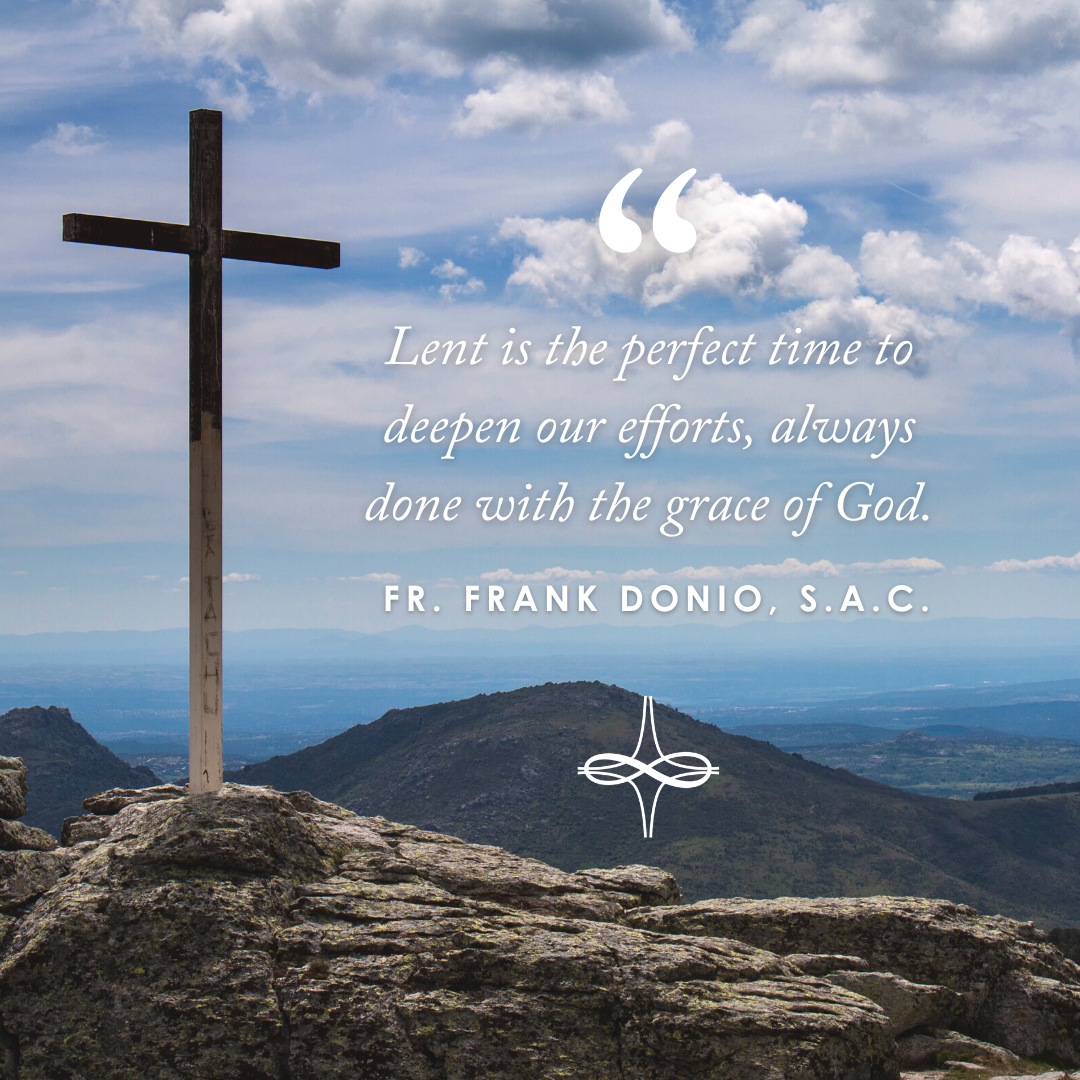 The tenth anniversary of the election of Pope Francis was on March 13th and anniversary of the inauguration of his Petrine Ministry was on March 19th. As we commemorate these special anniversaries, it is worth reflecting on his continual call to all the baptized to share responsibility for the mission of Christ and the Church as missionary disciples. He is simply restating the teachings of the Second Vatican Council. Living this mission is part of our call to holiness. Pope Francis describes holiness in Gaudate et Exultate “To be holy does not require being a bishop, a priest or a religious. We are frequently tempted to think that holiness is only for those who can withdraw from ordinary affairs to spend much time in prayer. That is not the case. We are all called to be holy by living our lives with love and by bearing witness in everything we do, wherever we find ourselves. Are you called to the consecrated life? Be holy by living out your commitment with joy. Are you married? Be holy by loving and caring for your husband or wife, as Christ does for the Church. Do you work for a living? Be holy by laboring with integrity and skill in the service of your brothers and sisters. Are you a parent or grandparent? Be holy by patiently teaching the little ones how to follow Jesus. Are you in a position of authority? Be holy by working for the common good and renouncing personal gain” (14). Prayer, both communal and individual, along with the Corporal and Spiritual Works of Mercy, which Pope Francis has emphasized often, will aid us in living holiness in the way that he describes. Lent is the perfect time to deepen our efforts, always done with the grace of God. Ad multos annos, Pope Francis! May the Charity of Christ urge us on! In God, the Infinite Love, Fr. Frank “Return to me with your whole heart, with fasting, and weeping, and mourning; Rend your hearts, not your garments, and return to the Lord, your God. For gracious and merciful is he, slow to anger, rich in kindness, and relenting in punishment” (Jl 2:12-13). There’s a moment in every Lent when I begin to stumble. When the promises I made seem too difficult, when I convince myself that the Lord doesn’t need my sacrifice, when I begin to follow the call of comfort and leave Christ’s side—and very suddenly I find myself lost in the desert. Maybe this experience sounds familiar to you, finding yourself two, four, six weeks into Lent, and all of a sudden you lose your motivation and forget why you decided to make your Lenten promises in the first place. It can be tempting when you find yourself in the place I fondly call “the mid-Lent slump” to give up entirely and say, “Maybe next year will be better,” “Maybe next year will be my year,” but in this post I want to present a different solution. This year, when we find ourselves lost in the desert, let’s press into the discomfort and ask Christ to teach us how to be with Him there. There’s a meditation that I have found to be incredibly helpful when I find myself in this place during Lent. Begin by placing yourself at the scene of the Baptism in the Jordan. What does it look like, smell like, sound like? How do you feel when it is revealed that the man in front of you is the Son of God? Then Jesus begins to walk into the desert and you follow Him. Why do you follow? Have you prepared for this trip, or have you brought nothing, trusting that He will provide? How do you feel now that you are in the desert? When we find ourselves in “the mid-Lent slump,” we need to remind ourselves of why we committed to Lent in the first place. When we are able to remember this “why,” we are given new strength to continue into the desert, to press in with Jesus into the discomfort, leaning on Him for strength, because we realize we aren’t alone in the desert. All of this, however, can be very difficult without practical steps to return to Jesus in the desert. Here are some that I have found to be most helpful when Lent becomes difficult.
Most importantly, as you press into Lent in the midst of the “slump,” remember the Lord’s unending mercy and love for you. As it says in Joel 2, God desires for us to return to Him with contrite hearts so that He can pour out His mercy and grace onto us. When you find yourself struggling in Lent, turn back to Him in all His kindness, and ask Him to walk with you and give you the strength you need to continue following Him into the desert.
Deus Caritas est: God is Love. How many times have we heard this simple yet profound theological truth in a homily, story, or teaching? How many times have we taken this for granted? In a world where truth often seems subjective, God’s love remains a refreshing and comforting constant in the Christian life. If this were not so, for what purpose, let alone by what means, would you or I exist? It is this perfect love of God which sustains us each and every moment of eternity. In fact, it’s God’s very nature, so bursting with love, that wills us into being. So too must our love for our neighbors guide and give purpose to our lives.
The liturgical season of Lent is an especially wonderful opportunity for us to reorient ourselves towards God’s love and mercy. As we prepare to celebrate the ultimate expression of love the world has ever known this liturgical season, we may give up something we fleetingly desire in order to be made more aware of our need to depend on the One Love, the True Love, the Infinite Love. Of course, we can do more throughout Lent, but take to heart the suggestion of my bishop: [T]his Lent, fast and abstain when the Church requires it; give something up to make room for God and his mercy to fill you. Pray more and pray deeply and whenever you can because God listens to you: prayer puts you in touch with God and his mercy. Do something good for someone else every day; resolve to care about someone else every day, because God does, Jesus does and wants you to be like him, loving and full of mercy. Don’t make this Lent a complicated regimen of resolutions and promises that will unravel a week from now. Make it simple. Make it real. [emphasis added] Lent is not a time of self-pity or bemoaning our spiritual shortcomings. To fail to acknowledge God’s willingness to have mercy and forgive the sinner of his or her faults places sin as the end without further hope of relief, restricts one’s view of God as having limits on his love, and risks committing a sin against the Holy Spirit (i.e. believing that the magnitude of a sin is greater than God’s power— and continuous willingness— to forgive [cf CCC 1864]). While Lent brings to mind the classic images of sackcloth and ashes, the Lord desires something much more personal than just the recognition of our sins—“sincere, heartfelt repentance, change of heart, conversion” is what each of us is called to offer the Lord with the same Love He offered to those He encountered in His earthly ministry and ultimately from the Cross. “I desire mercy, not sacrifice,” our Lord, echoing the words of the prophet Hosea, declares to the Pharisees during the calling of Matthew (cf. Hosea 6:6) For us today, these words still ring true. Lent is not an easy time, but it invites us to shake us out of our spiritual complacency if we are to answer the Lord’s call to conversion. This may be uncomfortable. Receiving the ashes on our foreheads tomorrow, however, signifies our commitment to God that we will endeavor each day—and not just until Easter Sunday—to change our lives to be (once again) oriented towards God in avoidance of the sin and distractions which lead us away from His love. While we seek forgiveness from God, we are also to freely forgive others, “And forgive us our debts, as we also have forgiven our debtors.” Even if we fall along the way, the important thing is to pick ourselves up and start again— the Lord is patient! In closing, let us reflect on a final word from the Venerable Fulton Sheen: God loves you despite your unworthiness. It is His love which will make you better, rather than your betterment which will make Him love you. … Say to yourself over and over again, regardless of what happens: “God loves me!” And then add: “And I will try to love Him!” (Fulton Sheen, Remade for Happiness: Achieving Life’s Purpose through Spiritual Transformation (San Francisco: Ignatius Press, 2014), 187, 25.) **This post was originally published on 2/28/2017** As part of our continuing efforts to grow the Catholic Feast Day Site, we have added one lesser-known saint or blessed per week. While these saints might not have the renown of St. Patrick or St. Francis of Assisi, they still are powerful role models and intercessors. When I was helping compile the resources to add these saints and blesseds to the site, I would try to put myself in their shoes. It is easy to write about them abstractly, just like a laundry list, but as I would imagine their situations, I would find myself in awe at how Christ worked through their life. During the rest of this month, we will celebrate the feasts of three incredible individuals in the life and history of the Church. St. Clement Mary Hofbauer Tomorrow, on March 15th, we will celebrate the feast day of the Redemptorist priest St. Clement Mary Hofbauer. Clement Mary Hofbauer lived from 1751 to 1820, a very tumultuous time in central Europe, especially around Poland and Austria where he lived. He helped open the first congregations of the Redemptorists north of Italy, helping the order spread throughout Europe. Clement Mary was responsive to the extreme poverty and need throughout Poland which was the result of the violent political conflict. He tried to help everyone he could. It must have felt like he was trying to drink from a fire hydrant with a straw, but he kept working for all the impoverished in Poland. Even after the political situation caused him to leave Poland for Vienna, he continued his work of helping individuals, even when some people might have seen it as futile. In honor of St. Clement Mary Hofbauer’s feast day, let us pray for his intercession, so that we too may trust that even when our works seem small, God can do great things through us. St. Rafqa Next week, on March 23rd, we will celebrate the feast of St. Rafqa. For me, St. Rafqa was one of those saints that made me glad I took the time to reflect on her life. Biographically, she was born in 1832 in Lebanon and died in 1914. She was a Mariamette Sister until 1871, and when the sisters merged with a different order, she joined the Lebanese Maronite Order and lived a quiet life of personal piety afterwards. That alone is impressive. But then I think about the incredible uncertainty and stress that must have come with the change from the Mariamette Sisters to the Lebanese Maronite Order. And I read that she lived the last twenty-nine years of her life with chronic headaches and eye pain, yet she continued her work in the order. Then she spent the last seventeen years of her life, while still in chronic pain, helping found a new monastery. In honor of St. Rafqa’s feast day, let us pray for her intercession, so that we too may keep Christ at the center of our lives, no matter the obstacles thrown in our way. Bl. Francesco Faà di Bruno On March 27th, we get to close out the month by celebrating the feast of Bl. Francesco Faà di Bruno. Faà di Bruno lived in the mid- and late nineteenth century in Italy. In the early part of his life, he was a well-known mathematician, especially renowned for his study of elliptic functions and higher order calculus. After becoming friends with St. John Bosco, Faà di Bruno became an active social reformer throughout Turin, helping those who otherwise would be forgotten by society. Unusual for the customs of the time, Faà di Bruno decided to become a priest in his late forties and spent the rest of his life as a priest, social reformer, and mathematician. It wasn’t that being a priest precluded him from being a mathematician; he lived his life in three-fold harmony. He even has a formula for high-level calculus named after him today! I find his life an inspiring model of how high-level math, faith, and social justice can all live in harmony while complementing each other. In honor of Bl. Francesco Faà di Bruno’s feast day, let us pray for his intercession, so that we too may let our God-given gifts shine and bring Christ’s love to others. St. Clement Mary Hofbauer, pray for us. St. Rafqa, pray for us. Bl. Francesco Faà di Bruno, pray for us. To learn more about the saints, visit our Catholic Feast Days Website by clicking here.
The conference organized by the Vatican Dicastery for Laity, Family, and Life, held in the new Synod Hall from February 16th to 18th, 2023, was remarkable and inspiring in many ways. Though I had the opportunity to participate in many similar church events in the past as Rector General, I must admit that this event was something special. The main theme of the meeting—“Pastors and Laity Called to Walk Together”—was communicated not only through lectures but also through a lived experience. There were more than two hundred participants, including cardinals, bishops, priests, religious sisters, leaders of associations, and lay members. We were all able to sit together, side by side, and listen, reflect, discuss, pray, and even eat together. There were bishops from so many episcopal conferences, and most of them came with their collaborators, priests, and lay members. Here was the Church of the People of God, “Pilgrims of Hope,” walking together with the same dignity and responsibility. There was no question of who was greater or smaller among us. We were all missionary disciples of Jesus. The event was organized to raise awareness among pastors and laity alike of the significance of the common responsibility that stems from Baptism and that unites us all. Cardinal Kevin Farrell, Prefect Dicastery for Laity, Family, and Life, put this ecclesial vision into words in his opening address: All members of the People of God, pastors and lay faithful alike, share full responsibility for the life, mission, care, management, and growth of the People of God. There is a need to go beyond the approach of “delegation” or that of “substitution” where the laity are “delegated” by the pastors for some sporadic service, or the laity “substitute” for clerics in some functions, yet they are working in isolation. All of this seems to be somewhat reductive. During the Plenary Assembly, we felt a renewed call from the Lord to “go forward together” in taking responsibility in serving the Christian community. Each of us does so according to our individual vocation. We do not adopt an attitude of superiority, but rather we pool our energies as we share the mission of proclaiming the Gospel to the men and women of our time. Lumen Gentium, the Second Vatican Council Constitution on the Church, states: “Let the spiritual shepherds recognize and promote the dignity as well as the responsibility of the laity in the Church” (37). This means that sixty years ago, the Second Vatican Council had already visualized such a church of communion and participation. The question remains as to whether there will be the actual realization of such an ecclesial vision in the local churches around the world. As a Pallottine, I know that my founder, St. Vincent Pallotti, had already visualized such a church more than a hundred years before the Second Vatican Council. St. Vincent stated: “Every Catholic, whether priest, religious, or lay faithful, should rejoice because all of his talents, knowledge, learning, studies, power, profession…material goods, prayers used or done for the spreading of the faith and rekindling of charity in the world can acquire the merit of the apostolate.” Thus, we are all called to the apostolate of Jesus Christ. Besides, by participating in the salvific work of Jesus, we perfect ourselves as an image of the Holy Trinity and become like Jesus himself, the supreme model of perfection. I left with a renewed conviction of the prophetic vision of the Union of Catholic Apostolate of the Roman St. Vincent Pallotti. Building up a church of communion, participation, and mission—as is so often repeated today as we talk about the synodal process—was the ultimate scope of this lively meeting. Yet I was also left with a puzzling question as well: how come this noble vision of St. Vincent has not inflamed our hearts to bring about its realization in service of the mission of God’s people around the world? What may be missing? Maybe we need to share this dream of Pope Francis, expressed during the audience granted to the participants on the final day of the meeting: How I wish that all of us might cherish in mind and heart this lovely vision of the Church! A church that is intent on mission, where all join forces and walk together to proclaim the Gospel. A church in which what binds us together is our being baptized Christians, our belonging to Jesus. A church marked by fraternity between laity and pastors, as all work side by side each day in every sphere of pastoral life, for they are all baptized. In other words, he speaks of a church built on spiritual communion, effective participation in the apostolate, and zealous missionary endeavors in favor of God’s people, especially directed towards those who are on the peripheries of faith and existence. In realizing such a dream, the Catholic Apostolate Center of the Immaculate Conception Province of the Society, under the leadership of Fr. Frank Donio, SAC and his team, renders a commendable service to the universal Church and the Pallottine family. Learn more about the conference here: http://www.laityfamilylife.va/content/laityfamilylife/en/news/2023/avanzare-nella-partecipazione-corresponsabile-dei-laici-.html http://www.laityfamilylife.va/content/laityfamilylife/en/news/2023/importanza-di-formazione-permanente-per-tutti-i-battezzati.html Once I learned about the tradition of picking a Confirmation saint, I was instantly interested in the life of St. Felicity. She was the Confirmation saint of my older cousin, with whom I am very close. I always heard the story that when the bishop heard that she chose St. Felicity as her saint, he had a big smile on his face. When it became my turn to be confirmed, this same cousin was my sponsor, so I thought it would be fitting that I also choose Felicity to be my saint. But I didn’t know a ton about St. Felicity, besides the fact that she had a very pretty name, was a martyr, and had her name read out in the Litany of Saints at the Easter Vigil Mass. As I have begun to research more about her life and martyrdom, I have only become more and more interested in learning about her. The first thing that I noticed about St. Felicity is that she is most commonly associated with St. Perpetua; you usually see them styled as “Sts. Perpetua and Felicity”. This is because the two women were imprisoned and martyred together in the early days of the Church, but that is just about the only similarity between the two women. St. Perpetua was a young noblewoman who had just become a mother at the time of her death, while St. Felicity was an enslaved woman who was imprisoned and pregnant at the time of her death. I couldn’t help but wonder how the two women became to be martyred together while on very different paths in their life. Perpetua’s father, who was pagan, pleaded with her to denounce her Christian faith, which she refused to do. This led to her imprisonment in Carthage, North Africa, at the age of twenty-two. As for Felicity, the only information we know is that she too was imprisoned for the refusal to deny her faith. There is actually a first-hand account of Perpetua’s imprisonment from a diary that she wrote, and in it, she details the horrors of her confinement. She writes, “After a few days we were taken into prison, and I was much afraid because I had never known such darkness. O bitter day! There was a great heat because of the press, there was cruel handling of the soldiers.” I can only imagine the rollercoaster of emotions that Perpetua was feeling during her imprisonment. She was taken away from her child and suffered violence from the soldiers, all for refusing to go against her faith. Sts. Perpetua and Felicity and their companions were soon martyred. They had all accepted their fate for their belief in God and lived out their final days in prayer. Prior to her death, St. Felicity gave birth to a baby girl, who was raised by a Christian woman in Carthage. I find it to be very fitting that the feast of Sts. Perpetua and Felicity happens to fall during Lent, a time in which we are meant to reflect on the suffering that Jesus faced during his Death and Resurrection. We can look back on the martyrdom of Sts. Perpetua and Felicity as another example that bears witness to extreme fortitude, similar to that of Jesus. Over the years, I have really enjoyed learning more about the life of St. Felicity, and I feel proud to have chosen her as my Confirmation saint after seeing the strength she showed during the suffering she faced at the end of her life.
As a young girl in elementary school, I attended a moderately small school—about sixty students in a grade level split into two classrooms. Each year, with the coming of a new grade, the class of students would get mixed up, and I’d usually have to make new friends. For some reason, I always gravitated toward meeting the students completely new to the school. At some point all of us have felt left out in one way or another, and I always wanted to make sure these new students didn’t feel ignored or out of place. This prompting to want others to feel included and like they belong has always stuck with me. I felt this most especially when I began to open my first house to a small women’s group gathering about once a week. At first, I was nervous to open my home to people I didn’t know or didn’t know well. But after my first few hosting opportunities, I found it to be something I enjoyed tremendously. I began to seek out additional chances for hosting themed activities, such as a Lenten soup and salad potluck or what has now turned into an annual cookie party tradition during Advent. And the best part: making new and lifelong friends. During the start of the Covid-19 pandemic, I moved to a new city. That meant a new home, new neighborhood, new church, new friends, etc. Years of isolation during the pandemic has made it difficult to meet people when you start over after a move. Last year, I decided to try something new—hosting a “Blessed Brunch” for local Catholic women at my new home. I hardly knew most of the women who attended the brunch, but I’ve walked away from that event with wonderful new friends and connections at local parishes. A month later, one of the women from the Blessed Brunch invited me to a small women’s group. This group has been a wonderful source of comfort and friendship to me over the last year. We each take turns hosting the monthly gathering, inviting others we know who may be interested in joining us. A woman from this group always asks if she can invite a friend in need of community whenever we host additional gatherings outside of the small group. I find this to be a very touching gesture and one that encourages me to think of additional people in need of community around me. I love this about hospitality: in the action of making our homes—and hearts—open to others through hospitality, we become more selfless by making room for and serving others. By being welcoming, we share what we have, whether that be food, time, or a willingness to listen and comfort. These small actions reflect God’s love for us. Jesus’ parable of the Good Samaritan is a classic example of how one man made himself vulnerable and available to the needs of another—an act of both generosity and hospitality. In contrast, when we serve out of a feeling of obligation, the joyfulness and warmth of giving in that hospitality is lacking. During Jesus’ public ministry, he and his disciples relied on the hospitality of others as they ministered to others. “Without cost you have received; without cost you are to give,” Jesus said (Mt 10:9-11). The early Christians relied heavily on the hospitality of other Christians who might have been strangers. As Acts 2:44-47 describes, “All who believed were together and had all things in common; they would sell their property and possessions and divide them among all according to each one’s need. Every day they devoted themselves to meeting together in the temple area and to breaking bread in their homes. They ate their meals with exultation and sincerity of heart, praising God and enjoying favor with all people. And every day the Lord added to their number those who were being saved.” As we listen to the invitations and promptings of the Holy Spirit this Lent, let us discern how we can invite Christ and others in our community into our hearts. Perhaps he is calling us to host a Lenten Bible Study small group or a Friday night soup, salad, and Stations of the Cross potluck. Maybe there is an opportunity for you to invite a catechumen or someone new to you or your church to attend an event together during the Lenten season. In the serving of others, we serve Christ himself. How might you be called to extend hospitality to others this Lent? How does one “prepare for Lent” in our current world? How might you quiet your life for forty days and be as if in the desert with Christ? What could Lenten preparations look like? These are the questions I considered as I began this reflection. As a mom, wife, teacher, and Catholic woman in today’s world, my life is hectic and my focus is often driven by the next prioritized event or deadline. If we’re being honest, I don’t have forty days to be consumed by a literal or figurative desert for prayer and quiet. But is that just the kind of reasoning that society is telling me? Where do I find God in the noise?
To more easily consider Lent this year, I broke it down into four categories of my life. This Lent as a mom, I want to cherish the little joyful moments. My son is now three, and other parents may understand when I say that sometimes three is exciting and adorable, but other times it’s exhausting and I count down the minutes until bedtime. Children are the most wonderful blessing, but they are so much work too. I want to be playful with Vincent this Lent, I want to do less complaining or rushing him through things, and I want to cherish the little joyful moments. This Lent as a wife, I want to be in solidarity with my husband as we try our best to support each other with Lenten sacrifices. For me, indulgence is an area where I want to work on sacrificing until Easter. It will be challenging, but it’s easier when you have someone beside you, helping you stick to a goal or a plan, and I know we can do this for each other. Forty days is a good time to get into better habits together and put our best feet forward for the Easter season. This Lent as an educator, I want to intentionally pray for each of my students and their families. Having moved to teaching at a new school this year, I have new students and a new environment where I can share with children how precious they are. Although I’m not at a Catholic school, I can still treat each of my nineteen students with intention and consider them and their families throughout Lent. This Lent as a Catholic woman, I want to add on quiet. This, for me, will look like turning off the radio for one whole commute to or from work a few times a week. During that time, I’ll sit with God and reflect: consider my actions, my gratitude, and my intentions for my day or my evening. I’ll try to avoid just picking up the phone to call someone and complain about a bad day or listening to music to drown out the day. I want to add on quiet. Thinking back to my first questions, I still am going to find it difficult to be in quiet with God and not just find time but MAKE time for Christ. I really think that’s the difference: when we only have moments here and there to give, we’re not at peace. When we make time for Christ—schedule it into a calendar or create a time of the day for just us and God—we will feel and find his blessings that much more easily. My challenge for you is to schedule time for God each week in Lent. Priorities will still be important and life will still be hectic and busy, but we can only sit with Christ in the desert for forty days. I wouldn’t want to miss that for anything in the world. My scheduled times with God for the next forty days will be: Tuesdays on my ride home from work, Saturday mornings for a few minutes before everyone is awake, Friday mornings on my way into work, and Sundays during the Gospel and homily when I can think and reflect on the Word in Scripture. I know I can achieve these four times each week, and I know it’s not too much for my to-do list. I’ve even added them to my calendar so I can’t forget. We’re exhausted; Christ was too. We’re weary and burnt out; Jesus’ apostles were too. We’re calling out to our Heavenly Father, “Why have you forsaken me?” as Christ did (Mt 27:46). All you have to do is make time and be open. |
Details
Archives
July 2024
Categories
All
|
About |
Media |
© COPYRIGHT 2024 | ALL RIGHTS RESERVED

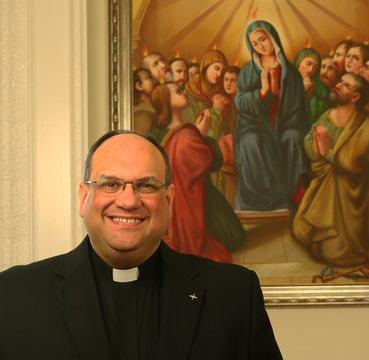
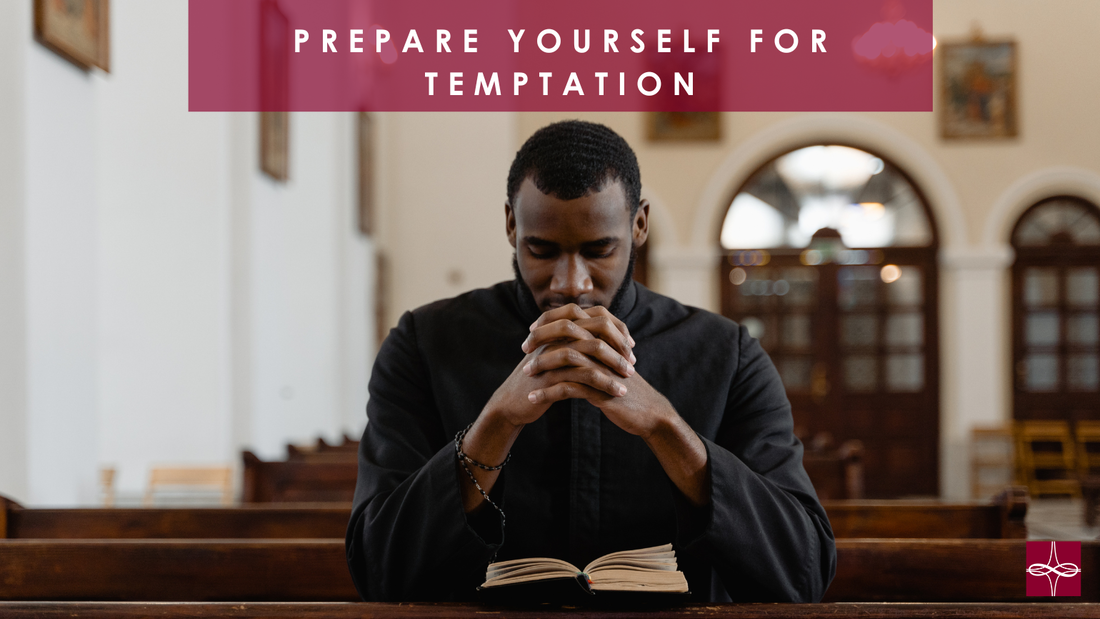
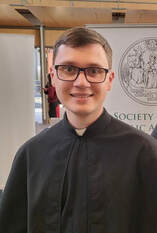


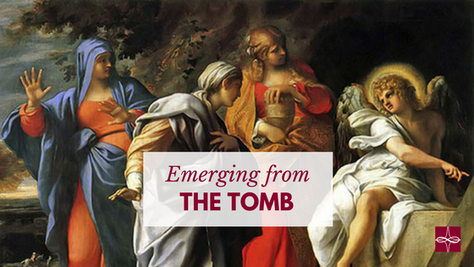

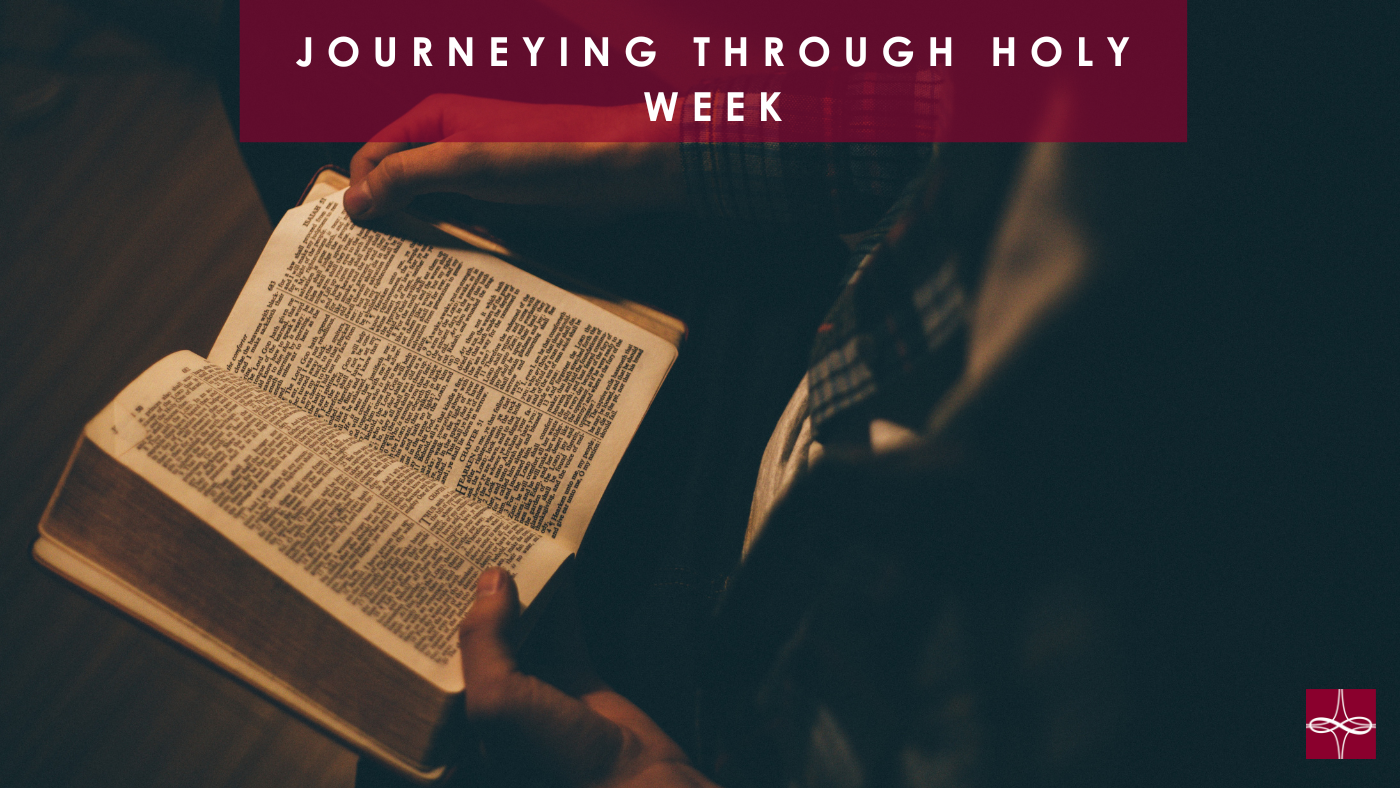

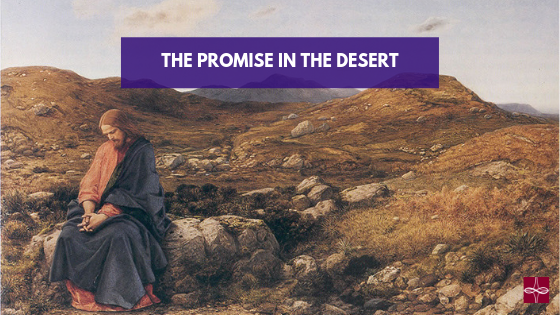

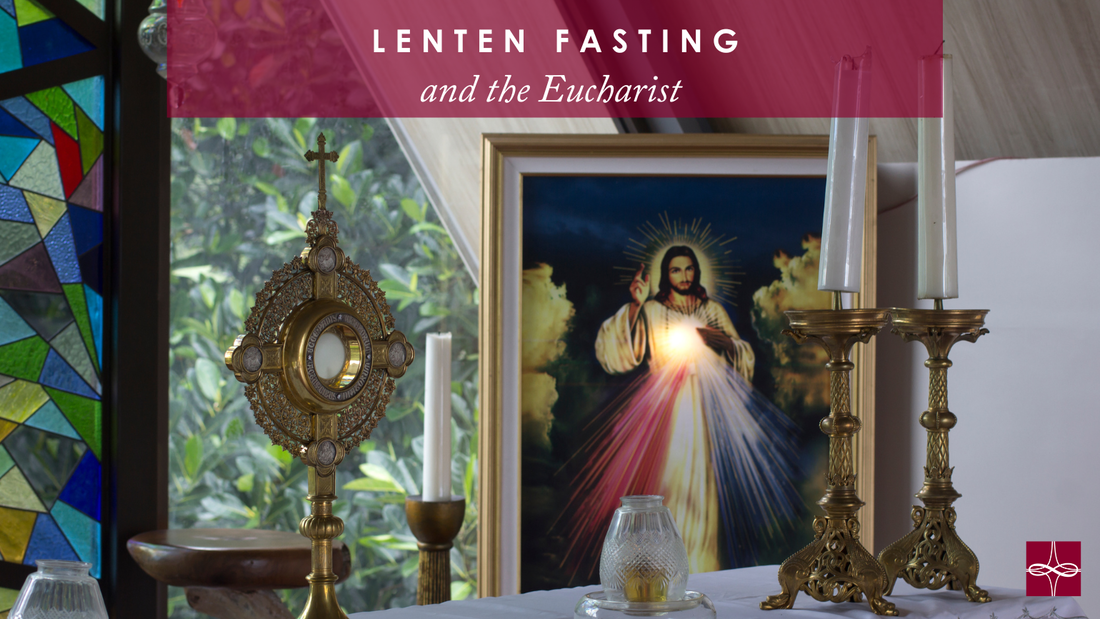

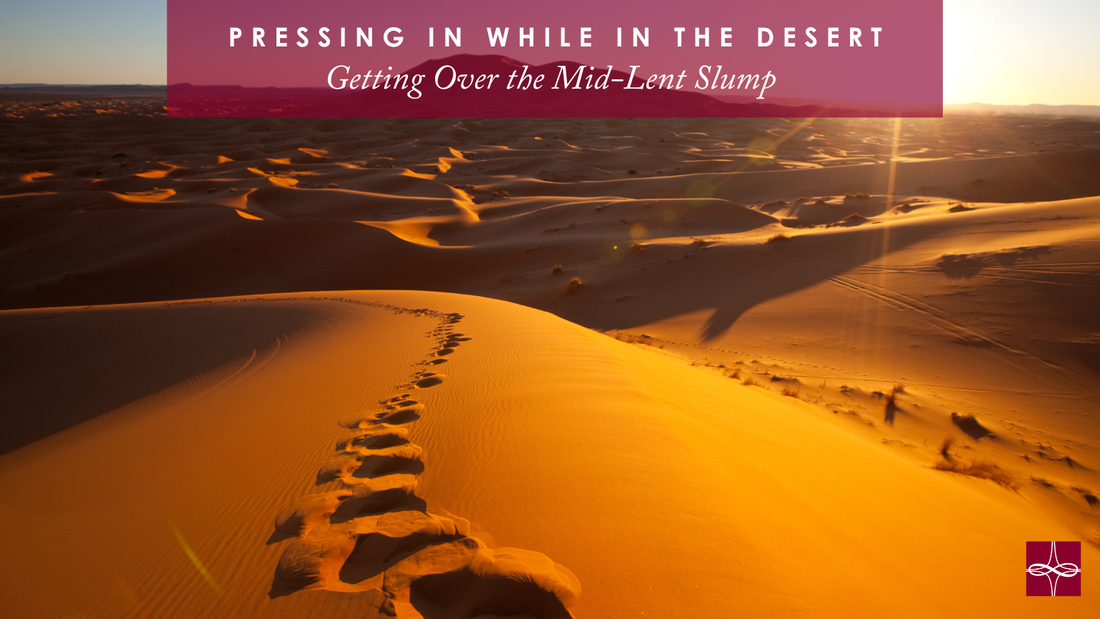

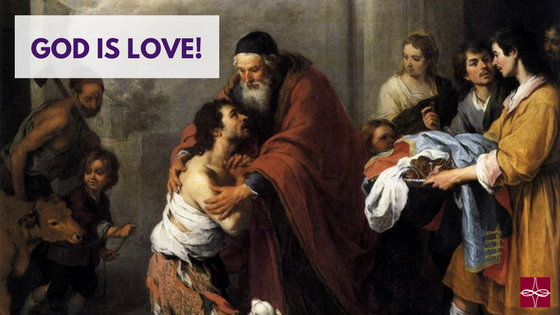

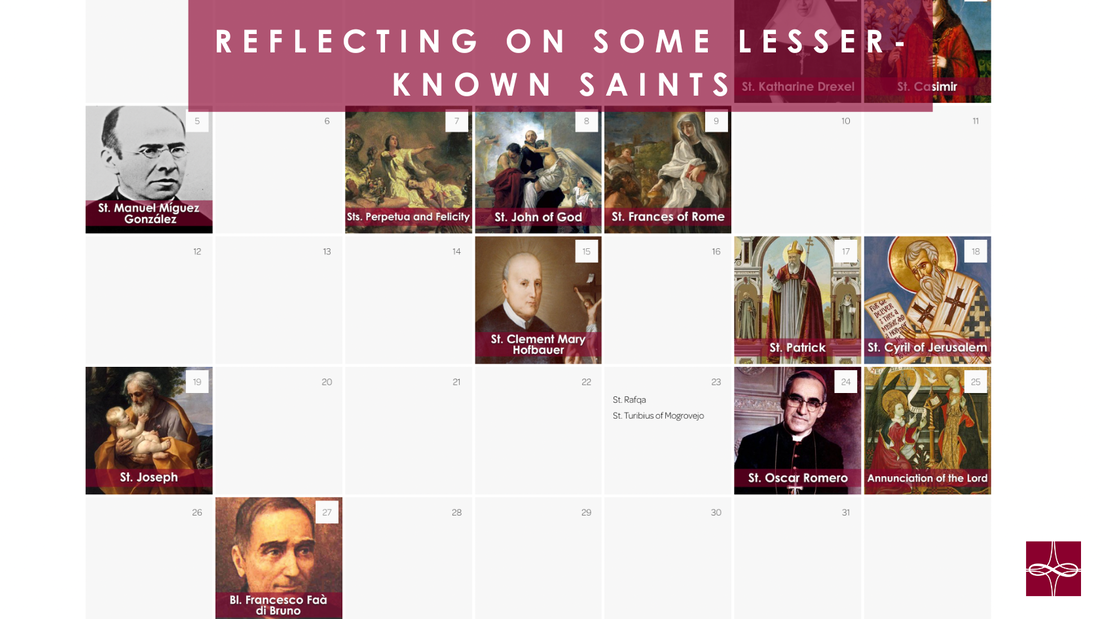
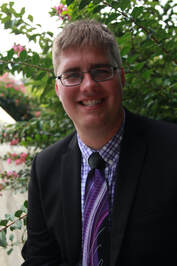
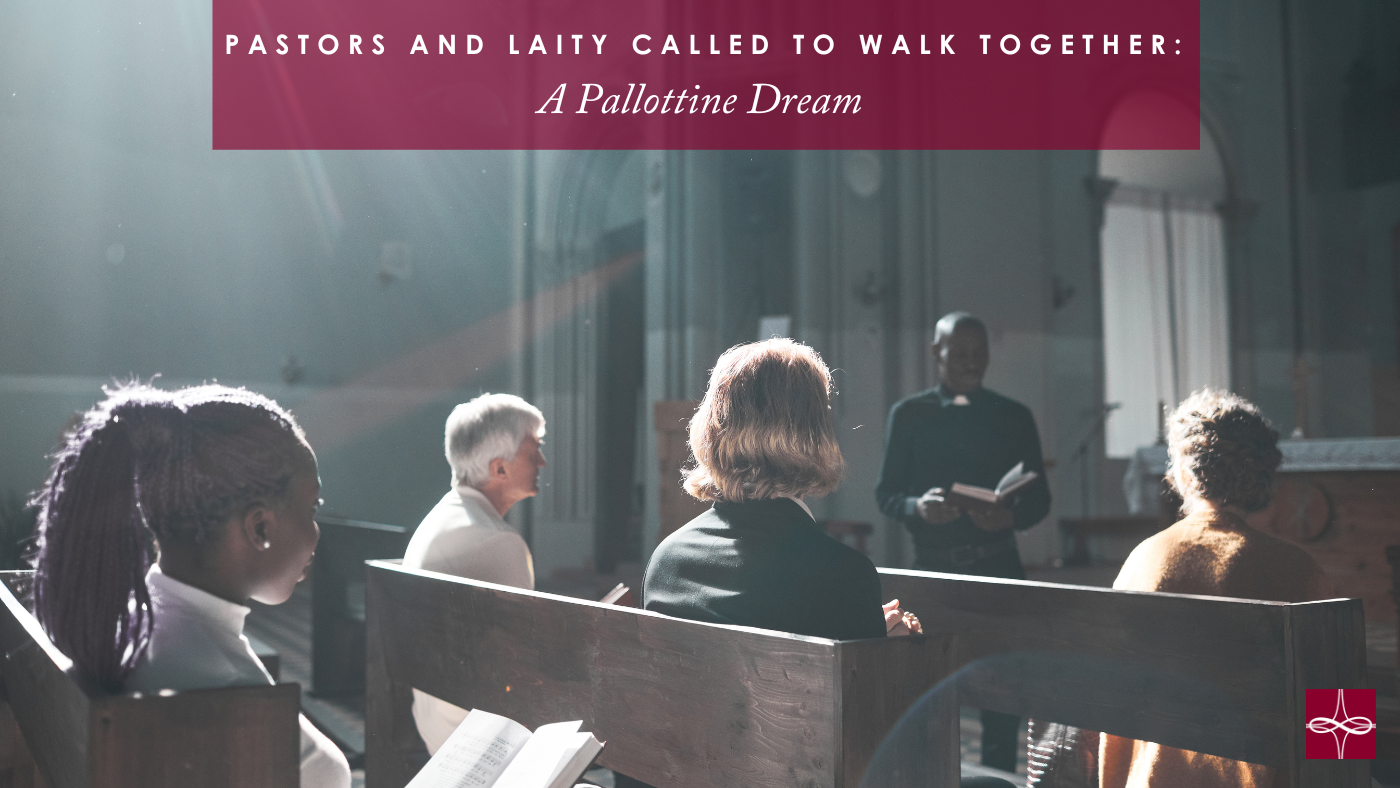
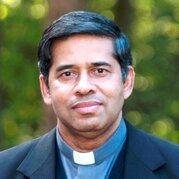

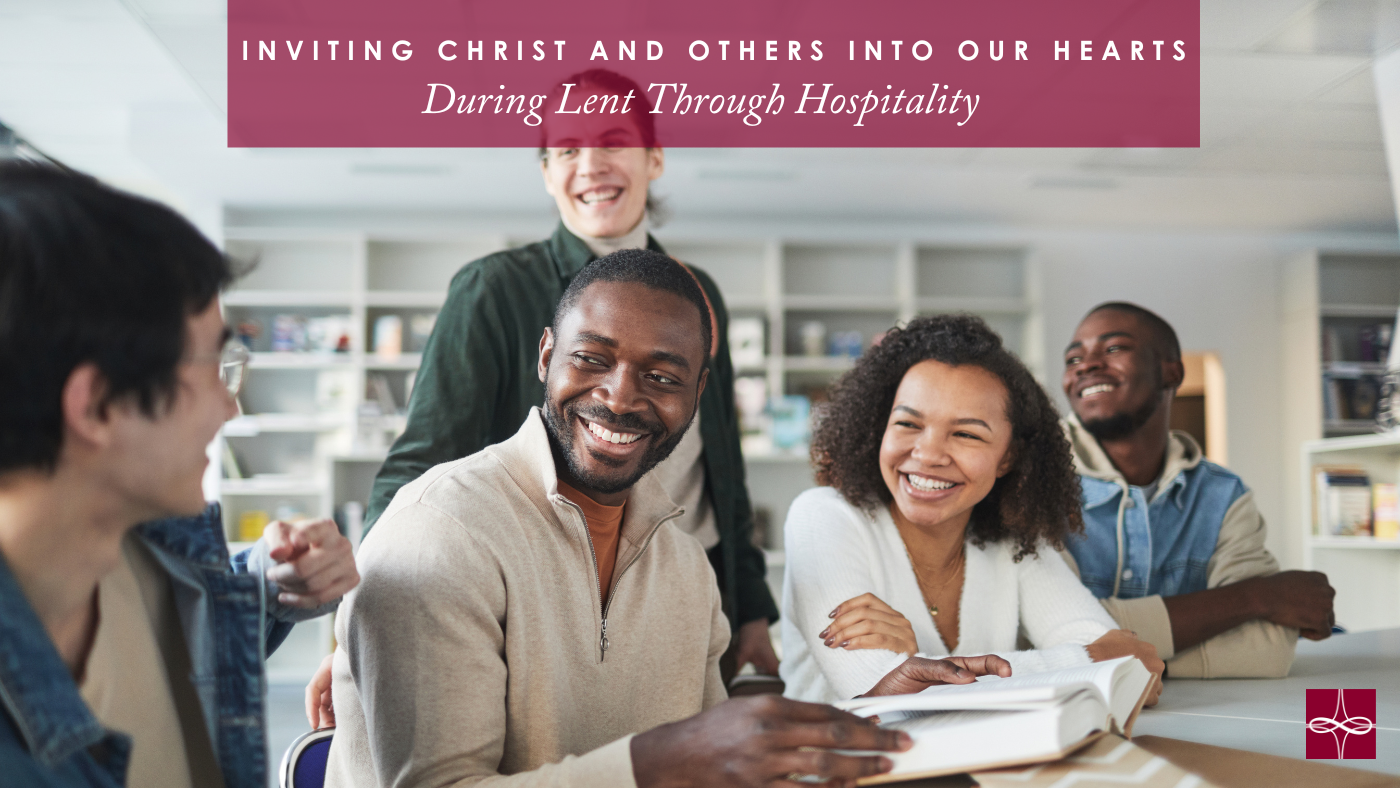



 RSS Feed
RSS Feed